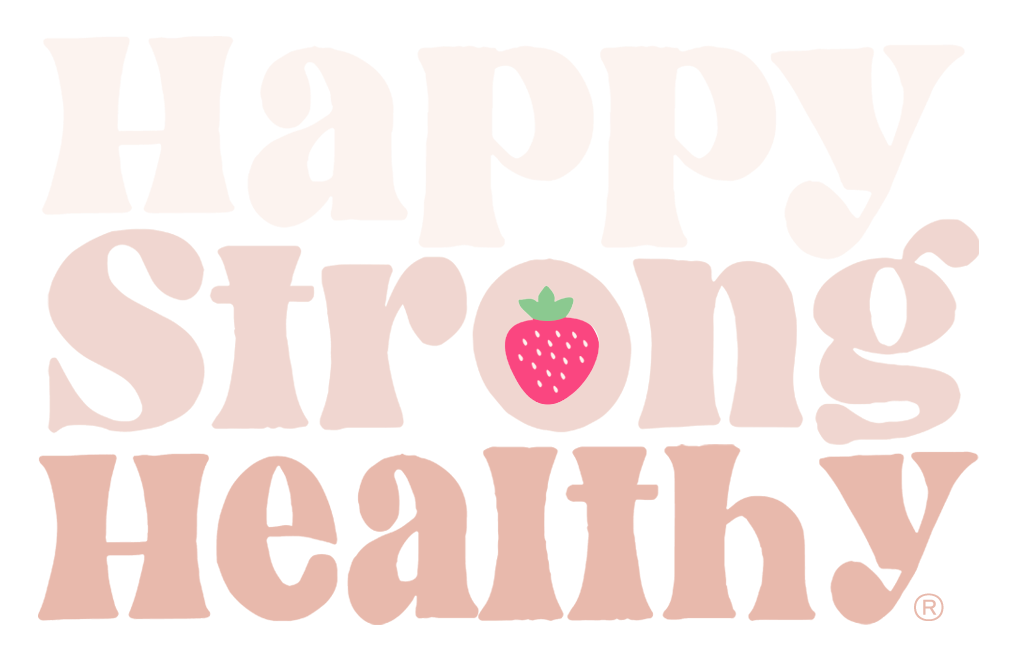How Much Caffeine is Too Much?

Nine in ten US citizens consume caffeine. If you ask any college student or young adult, you would know that this is absolutely true.
However, when is it time to put the energy drinks and coffee down?
Majority of Americans are consuming coffee, energy drinks, tea, and soda for their caffeine fix. Each different type of caffeine contains a different amount. For example, energy drinks and coffee are 2 products that normally contain the most amount of caffeine per ounce (anywhere from 80mg-300mg).
Let’s start off by talking about the basics of caffeine.
Contrary to what many influencers are saying, there is no nutritional need for caffeine in a daily diet. We can survive and thrive without it.
Now does it help us get to work and stay awake on those hard days, of course!Studies have proven that caffeine stimulates our nervous system. It can help our attention and alertness (especially for those early early mornings).
However, it can be so important to keep a healthy sleep hygiene and decrease our caffeine habits.
What is the recommended amount of caffeine daily?
The upper limit of caffeine intake is 400mg or 4 cups of brewed coffee a day. But, again if you suffer from any type of anxiety or raise blood pressure, it is recommended to try and stay below 200mg of caffeine or lower based on symptoms. Some symptoms of too much caffeine can include the following: jitters, headaches, insomnia, fast heartbeat, and muscle tremors. Many professionals are even now recommending under 100mg for teens with the current rise of anxiety.
But what are the differences between the popular choices out there?!
Some popular energy drinks include the following: Red Bull, Celsius, Alani Nu, Monster Energy, and Bang.

However, caffeine in general comes with some warnings. If you suffer from anxiety or high blood pressure, it is recommended to watch the amount of caffeine you take in. In addition if you are pregnant limiting caffeine is very important.
This is why it is so important to read the nutrition labels on drinks. Many popular energy drinks like celsius and alani nu have about 200mg of caffeine which can be a lot in one sitting. It is also important to look at the amount of caffeine in your preworkout if you are actively taking that. Preworkout + energy drink + coffee after your workout can lead to many health concerns and can be dangerous. Taking in too much caffeine is not only dangerous, but can sadly be fatal.
So if you are consuming energy drinks or lots of coffee, what are some good alternatives?
If you REALLY enjoy having coffee dates with your friends and do not want to give those up, try going decaf or slowly cutting back on your caffeine intake. If you are a tea drinker, try tea with less caffeine such as matcha (75mg per cup avg), white tea (6-55mg per cup average), black tea (47mg per cup average), and even herbal tea.

Written by Emma Sommers
Hey, I'm Emma!
I'm currently a Senior at Purdue University studying Nutrition and Dietetics. I love everything about nutrition and have a passion towards helping people learn to love food and all the science behind it! Learn more about the HSH offerings here.
Confused about seed oils? You should be! Wellness influencers saw an opportunity to incite fear and increase engagement by cherry picking data and ran with it. And it worked. But what is fact and what is just simply fear? Let’s clear some stuff up so you can make informed decisions that are best for you.

February is American Heart Month, and as a registered dietitian, I want to share my secret heart-healthy tip with you: consider adding Florida Orange Juice to your daily routine!
Discover 9 must-have cookbooks for your kitchen, from quick one-pan meals to family-friendly recipes. Perfect for busy cooks, these cookbooks offer simple, delicious solutions for everyday cooking, meal prep, and entertaining.
Expert guide to protein supplements: Learn when to take them, how much you need, and which type is best for your fitness goals. Discover the differences between whey and casein, optimal timing, and quality considerations from registered dietitians.
Discover the science-backed relationship between diet and sleep quality. Learn how macronutrients, micronutrients, and meal timing impact your sleep, plus practical tips for better rest through nutrition. Expert insights from registered dietitians.
Transform ordinary carrots into a showstopping Thanksgiving side dish with this easy brown sugar glazed carrots recipe. Learn how to make this kid-friendly, nutrient-rich vegetable dish that combines sweetness with savory herbs.
Discover 7 creative and protein-packed cottage cheese recipes from a registered dietitian. Learn how to make cookie dough, lasagna, queso, and more using this versatile ingredient. Elevate your meals with these easy, nutritious cottage cheese ideas.
Discover why cortisol isn't the enemy and learn 5 effective, natural strategies to manage stress without supplements. Our registered dietitian's guide explores sleep, mindful eating, balanced movement, stress management tactics, and alcohol alternatives for holistic well-being.
Elevate your at-home date night with our easy, nutrient-packed charcuterie board for two. Learn how to assemble a romantic spread using Trader Joe's ingredients, balancing protein, fats, carbs, and fiber. Perfect for couples looking for a fun, flavorful, and intimate dining experience.
Discover the truth about BCAA supplements from a registered dietitian. Learn what BCAAs are, how they compare to other amino acids, and whether you should include them in your fitness routine. Get evidence-based answers to the most common BCAA questions and make informed decisions about your nutrition.
Discover a delicious and nutritious Caprese White Bean Salad recipe perfect for meal prep, quick dinners, or summer gatherings. Packed with protein, fiber, and healthy fats, this versatile dish can be served over pasta, romaine, or enjoyed on its own. Learn how to make this easy, flavorful salad in minutes!
Discover the truth about creatine supplements from a registered dietitian. Learn the differences between creatine monohydrate and micronized creatine, who can benefit from supplementation, and get answers to common questions. Explore the latest research on creatine's effects on muscle growth, brain health, and more.
Discover the truth about pizza's nutritional value from a registered dietitian. Learn how to enjoy pizza guilt-free, balance it with side salads, and compare frozen pizza options. Debunk diet culture myths and embrace intuitive eating with our expert insights.
Discover a quick and satisfying Air Fryer Brunch Toast recipe. Perfect for busy mornings or pre-travel meals, this delicious and nutritious toast combines sourdough, eggs, avocado, and more. Learn how to make this easy, filling breakfast that'll keep you energized for hours.
Discover the truth behind the mushroom coffee trend. Learn about its history, nutrition facts, potential benefits, and price. Is this wellness craze worth the hype? Find out in our comprehensive blog post
Elevate your morning routine with our delicious and easy-to-make breakfast taco recipe. This dietitian-approved dish features a flavorful combination of scrambled eggs, black beans, avocado, and zesty seasonings, all wrapped in warm tortillas. Perfect for busy mornings or weekend brunch, this recipe will become your new go-to breakfast favorite. Learn how to make this mouthwatering meal in just 25 minutes!
Learn about the popular diabetic weight loss drugs, GLP-1's and SGLT-2's, and how they work to help with weight loss and lowering A1C levels. Discover the potential side effects and considerations before starting these medications. Get informed with our comprehensive guide on diabetic weight loss drugs.
Discover the #morningglowmocktail, a delicious and sleep-enhancing drink featuring tart cherry juice, a natural source of melatonin. Learn how to make this easy mocktail and improve your sleep quality during #bettersleepmonth. #sponsored by Tart Cherry Industry. #ustartcherries
Elevate your spring and summer BBQ menu with this delicious and satisfying Prosciutto Pasta Salad recipe. Packed with roasted red peppers, parmesan cheese, fresh veggies, and a tangy dressing, this easy-to-make dish is perfect for any occasion. Learn how to create this crowd-pleasing pasta salad with our step-by-step guide.
Colostrum, the "liquid gold" supplement, is trending, but is it worth the hype? Learn about the benefits and limitations of bovine colostrum for adults based on current research. Discover the truth behind the marketing claims and make an informed decision about this popular wellness trend.
What’s something that fad diets have that you won’t find here? Well, to be honest, there are many things (LOL) restriction, strict rules, avoiding foods, etc. but the answer in this case is food additions! Nutrition Addition, let’s talk about it!
The sleepy girl mocktail has been making its rounds around TikTok, claiming to help you sleep easier and improve sleep quality. Let’s take a look at the ingredients and see if the talk measures up to the science!
Whether you are going for a run, lifting weights, or an athlete getting ready for a game or race, fueling your body properly is extremely important.
It seems like social media is always looking for ways to tear down or call specific foods bad for you. For the last few years, there have been so many negative articles about seed oils and how “toxic they are”. But are seed oils ACTUALLY bad for you? Let’s talk about it!
Metrics from activity on the app, Strava, expect that up to 80% of people make a resolution and abandon it before the end of January. What if instead of forcing yourself into a box of changes that may or may not be attainable and suitable for your lifestyle, you provided yourself space to grow, breathe, and find ways to better uplift and love yourself?
Many disordered eating behaviors have become so normalized that you might not even realize you are struggling, read on for some common normalized eating behaviors and why they are not normal at all.
As a busy college student, energy bites are a major staple food for me! They come together quickly, freeze well, and are VERY customizable. Packed with fiber and vitamin A, these energy bites are a tasty, no-bake, holiday treat for the whole family.





































